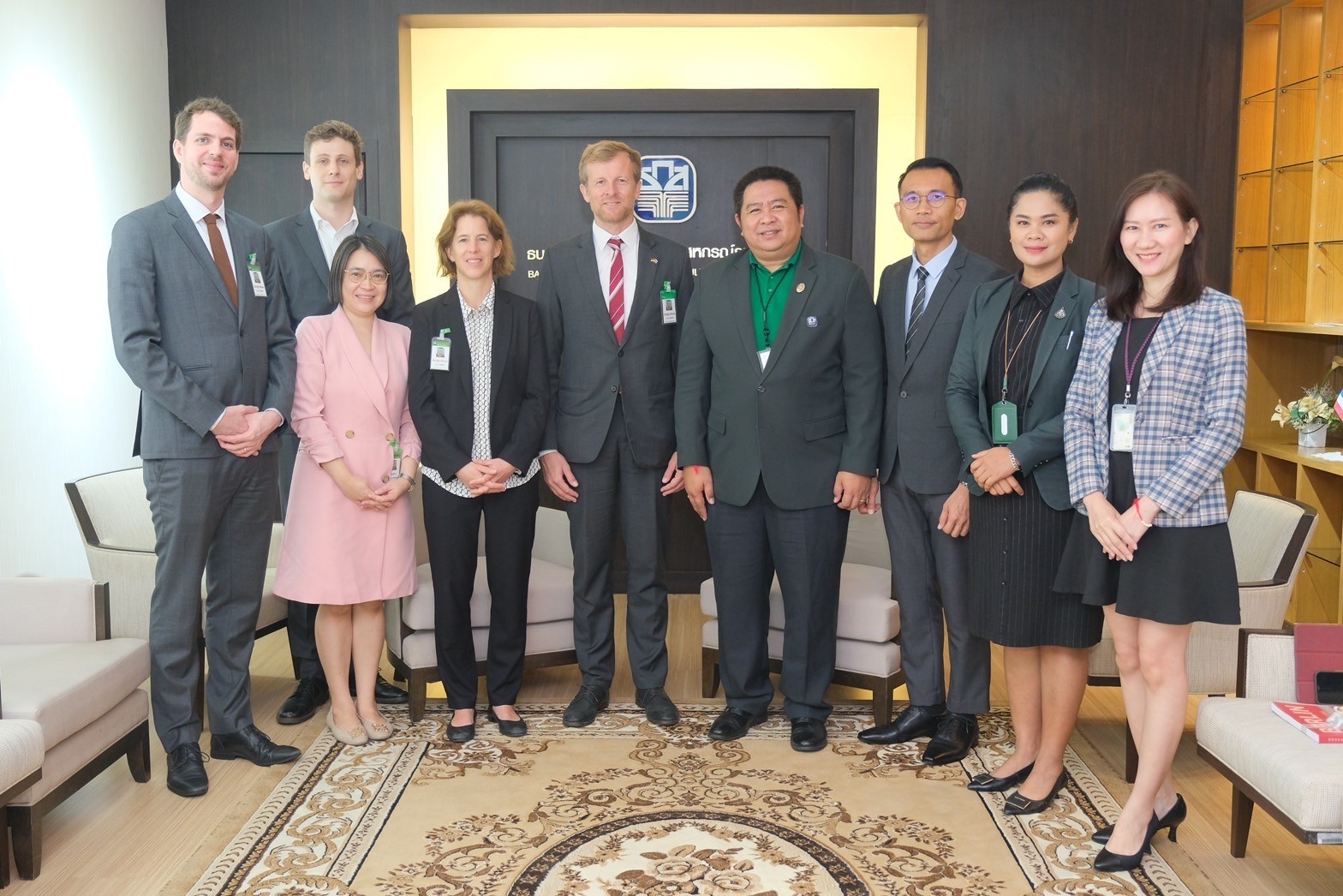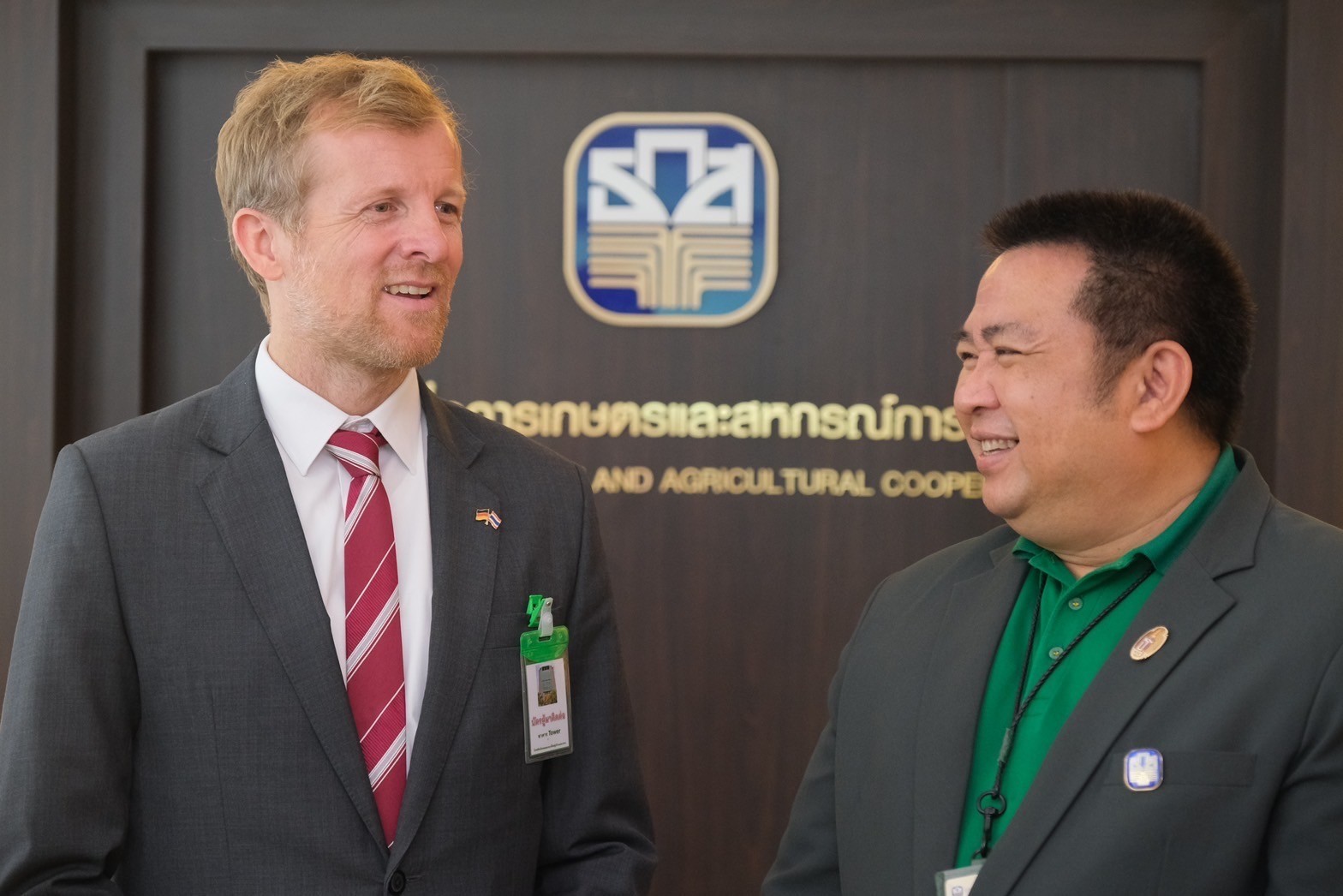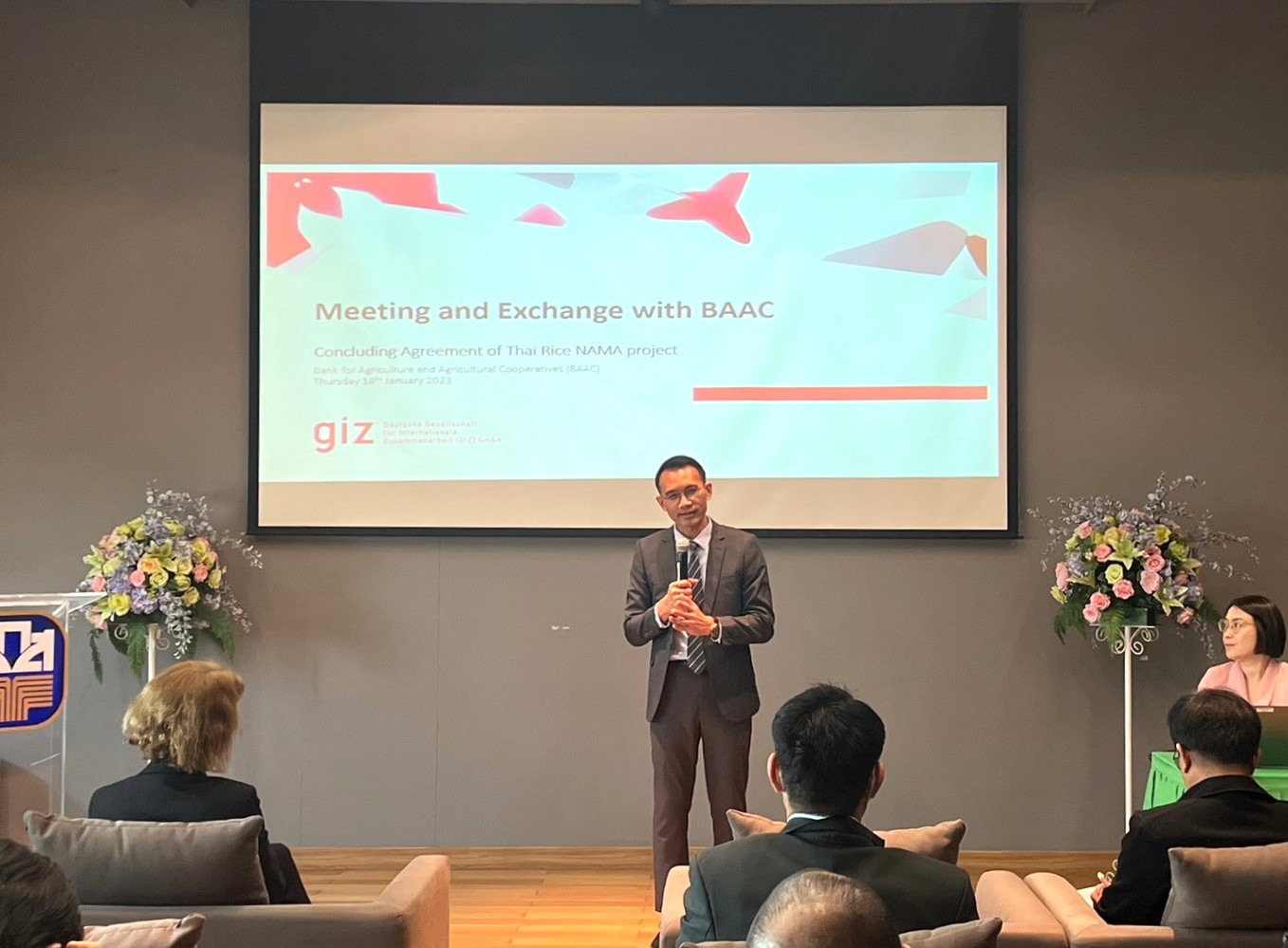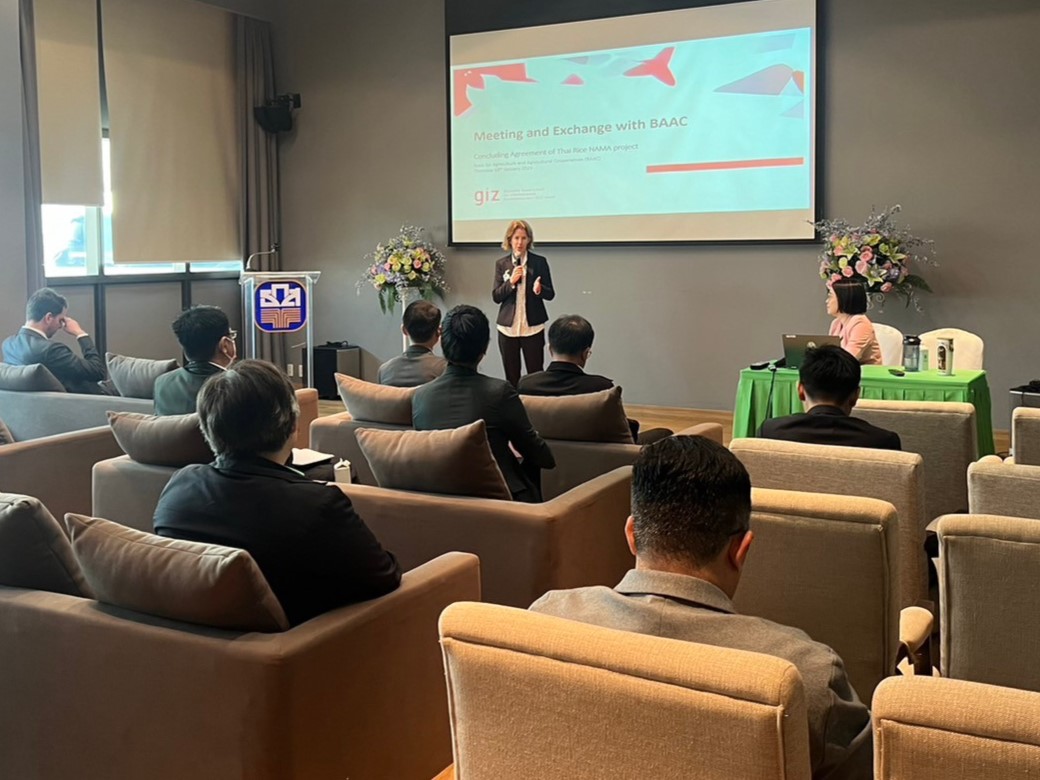GIZ-BAAC strengthens collaboration on climate-smart agriculture in Thailand

- GIZ Thailand paid a courtesy visit to the Bank for Agriculture and Agricultural Cooperatives (BAAC) at its head office, underlining the continued support and joint collaboration between the two organisations.
- GIZ Thailand and BAAC signed an MoU in 2023, focusing on capacity building, preparedness, and the implementation of green agricultural finance, sustainable finance mechanisms and operations.
- BAAC and GIZ Thailand executives also further discussed the feasibility of carrying out activities for the wrapping up of the Thai Rice NAMA project while continuing collaboration on climate-smart agriculture and livelihood development projects for Thai farmers.
Reinhold Elges, Country Director of GIZ Thailand, and Dr. Nana Kuenkel, GIZ Thailand’s Agriculture and Food Cluster Director and Coordinator, paid a courtesy visit to Chedtha Laepong, Senior Executive Vice President of the Bank for Agriculture and Agricultural Cooperatives (BAAC) at BAAC’s head office on 18 January, 2024.

The visit underlined the continued support and collaboration as outlined in the MOU signed between the two agencies in March 2023. The agreement focuses on capacity building and preparedness, and the implementation of green agricultural finance, sustainable finance mechanisms and operations. The aim is to address the impacts of climate on Thailand’s agricultural sector, particularly rice farming.
Thailand has been implementing the Thai Rice Nationally Appropriate Mitigation Actions or Thai Rice NAMA project under the Rice Department, BAAC and GIZ since 2018 to support smallholder farmers in accessing technologies and innovations essential for mitigation and low-emission rice farming. The project will continue through July 2024.

BAAC and GIZ Thailand executives also further discussed the feasibility of carrying out activities for the wrapping up of the Thai Rice NAMA project while continuing collaboration on climate-smart agriculture and livelihood development projects for Thai farmers.
“BAAC wants to encourage farmers to cultivate rice following a new approach that helps increase yields, quality and revenue and reduces global warming,” said Chedtha.

The GIZ Thailand Country Director emphasised that sustainable rice production would play an important role in the transformation of the Thai economy to reach carbon neutrality and net-zero greenhouse gas emissions. “We will continue to help our agricultural partners in Thailand to promote the adoption of sustainable rice farming while enhancing rice farming efficiency and productivity to reduce climate change impacts in the long run,” said Mr Elges.
Nana Kuenkel
Agriculture and Food Cluster Director and Coordinator
Email:nana.kuenkel(at)giz.de